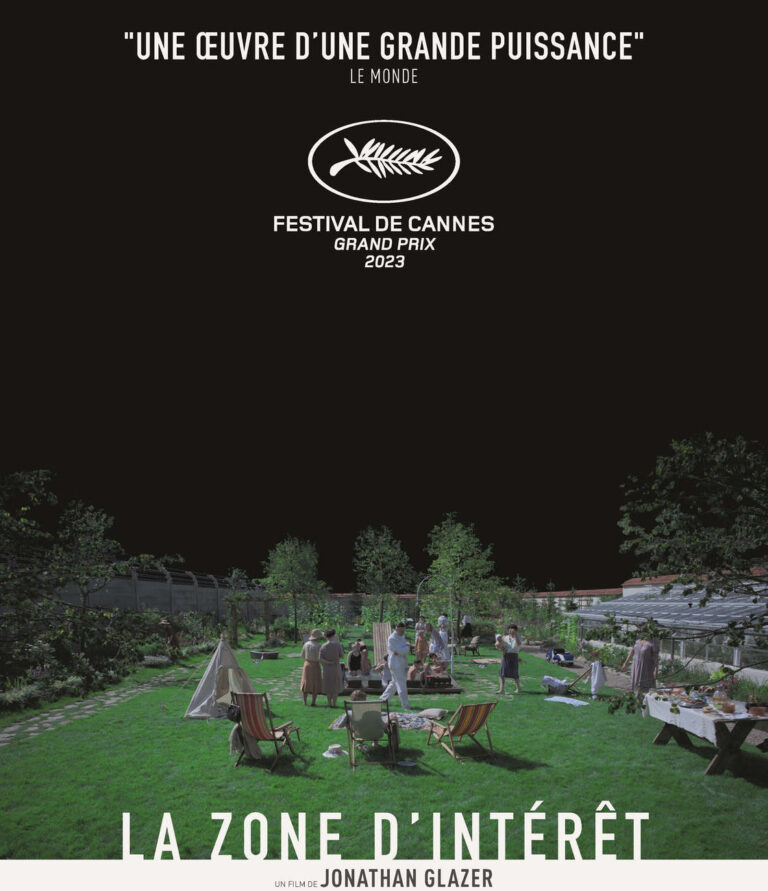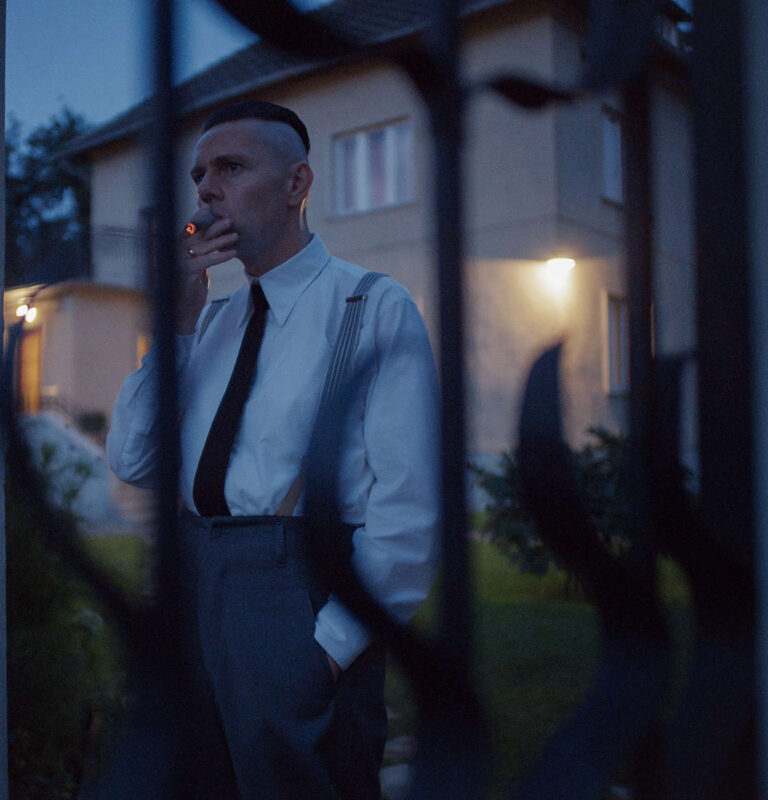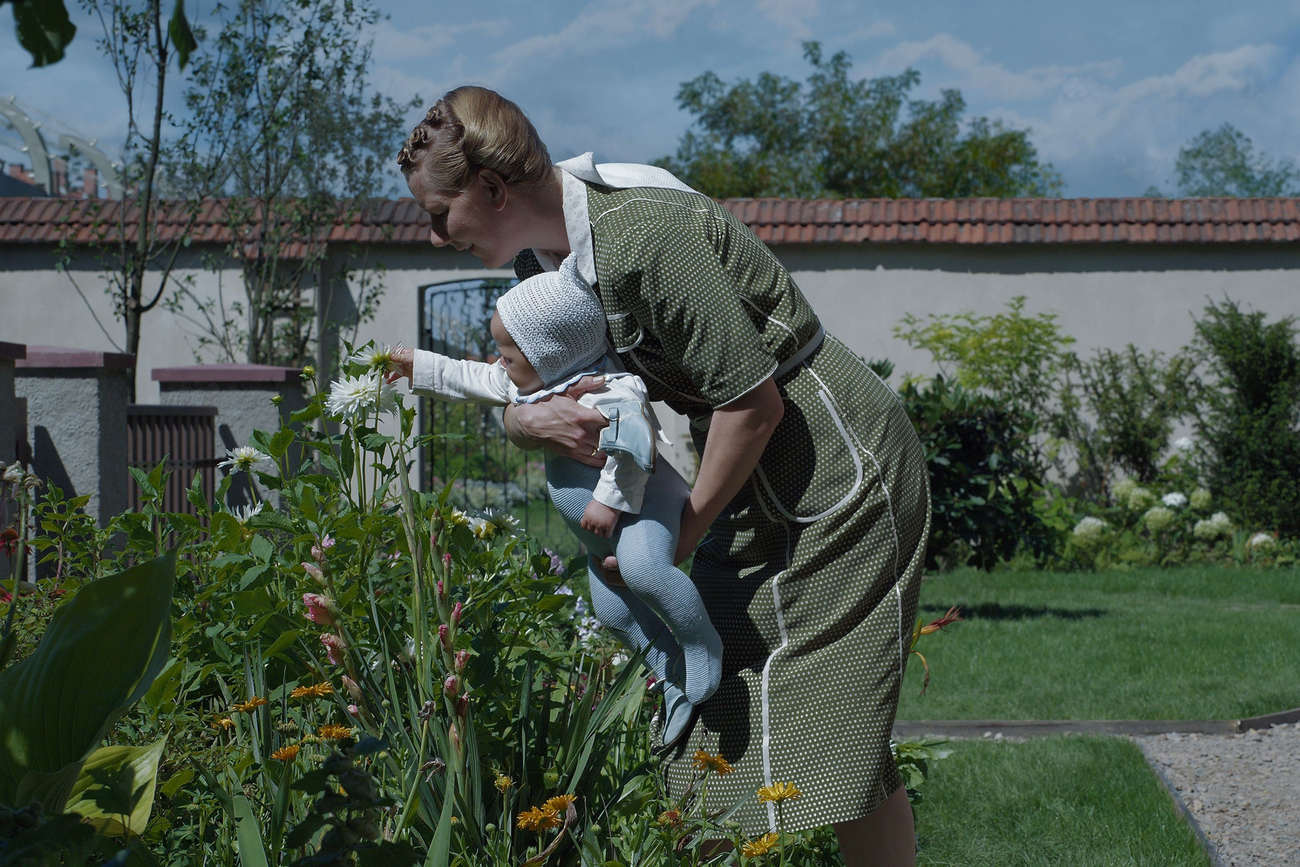Winner of the Grand Prix on the Cannes Movie Pageant, Jonathan Glazer’s movie demonstrates by instance “the banality of evil”, the quiet, carefree every day lifetime of a Nazi household proper subsequent to the Auschwitz camp.

“It’s heavenly!” exclaims the mistress’s mom. Proudly, she takes guests on a tour of the multicolored backyard, the well-kept vegetable patch and the huge home occupied by her household – a privilege as a consequence of her husband’s rank – a non-public residence situated in “The Zone of Curiosity”, the title of Jonathan Glazer’s movie (out January 31). Admittedly, the property does have a couple of drawbacks, such because the barbed wire overhanging the wall on the backside of the backyard, the watchtower behind it and, slightly additional again, the big, red-hot chimney belching smoke into the sky… However in the long run, this does little to disturb the peace and carefree life-style of the inhabitants on this aspect of the border.
Tailored from the novel by Marin Amis, which gained the Grand Prix on the Cannes Movie Pageant and was subsequently introduced on the Deauville Movie Pageant, “The Zone of Curiosity” is thus “a movie based mostly on an English novel carried out in German and shot in Poland”, very near the Auschwitz camp. For that’s the place it’s set, in and across the snug household house of Auschwitz camp commandant Rudolf Höss (performed by Christian Friedel), a home run by his spouse Hedwig, performed by Sandra Hüller (who additionally performed the accused girl in Justine Triet’s Palme d’Or winner “Anatomy of a Fall”).
Jonathan Glazer (“Underneath the Pores and skin”, “Attractive Beast”, “Beginning”) movies the every day lifetime of a Nazi household proper subsequent door to an extermination camp, typically utilizing surveillance cameras and hidden cameras. Winters are chilly in Poland, however right here we’ve got heating, a rest room and Polish employees; the grass is inexperienced within the backyard, the place ashes from “subsequent door” are used as fertilizer; the kids benefit from the swimming pool; the women chat in the lounge with a cup of tea, and select from a bag of garments dropped off. Hedwig, the “Queen of Auschwitz”, takes on a stupendous fur coat.
What we don’t wish to see

In the meantime, within the places of work, engineers current plans for an extermination machine, and the patent for a round crematorium is mooted. However as highly effective as he was, the Commandant was a mere govt with advantages, however one who could possibly be moved on the whim of his boss, who was quickly to be transferred in opposition to his will. The Höss household would then have to go away their “paradise”, which might drastically upset Madame, who needs to maintain her home, her comforts, her backyard… which her personal mom most popular to go away discreetly, undoubtedly disturbed by the close by night-time rumble, barking canines, patrols…
And above all, by what we don’t see, or don’t wish to see. Just like the Main, blindfolded earlier than discovering his birthday current (a canoe). “The Jews are on the opposite aspect of the wall”, says Hedwig, and so all through the movie we stay on this aspect, seeing nothing of the within of the camp, the horror, the “mechanized genocide”, the atrocity, the “ultimate answer”…
Jonathan Glazer demonstrates “the banality of evil” by instance, the indifference of neighbors to what’s occurring on the backside of their backyard. If the expression “zone of curiosity” outlined a forbidden perimeter, this cinematic “zone of curiosity” can solely arouse unease, disturbing, chilling, medical, upsetting, proper as much as the finale, these days, the place cleansing crews go about their every day work within the Auschwitz “museum”.
Patrick TARDIT
The Zone of Curiosity”, a movie by Jonathan Glazer (out January 31).

